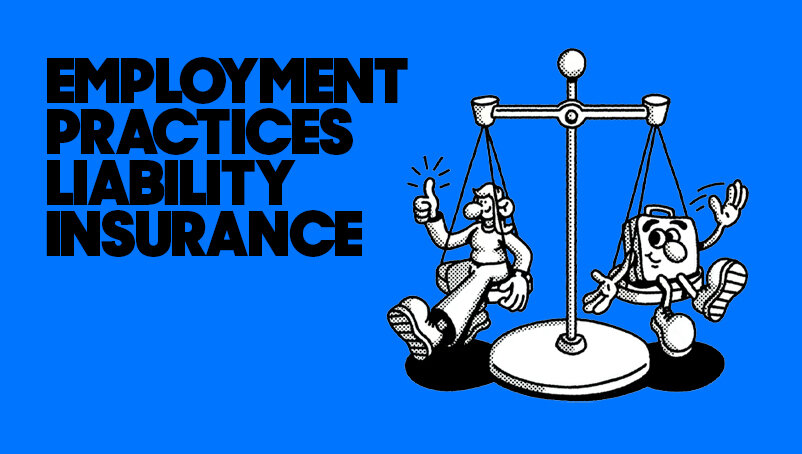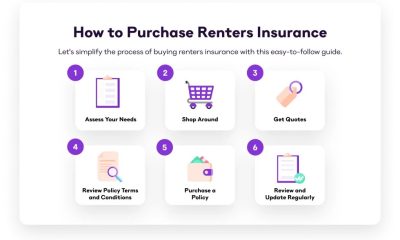Insurance
Employment Practices Liability Insurance | How It Works

Employment practices liability insurance (EPLI) protects your company against lawsuits brought by employees for illegal activities such as discrimination, wrongful termination, and retaliation. It covers verdicts, settlements, and the cost of defending your company against employment-related litigation. EPLI protects your company against discrimination lawsuits brought by current or former employees and job candidates.
How Employment Practices Liability Coverage Works
EPLI protects discrimination, harassment, and demotion claims by current, former, and prospective employees. Some policies cover customer and vendor discrimination claims against your business.
EPLI covers claimant damages and liability defense for your firm. It may also involve EEOC regulatory actions against your firm. Defense costs may be included in the policy limit or not.
While your insurance is active, most EPLI policies cover claims against your firm. Post-policy claims aren’t covered. Insurers usually require you to record all claims under your coverage.4. Progressive. “Claims-made Vs. Occurrence.”
Some policies prohibit claims from “prior acts,” or events before your policy commenced. Others cover claims from earlier conduct after your policy’s retroactive date. The retroactive date is usually your first EPLI policy start date.
Types of Claims EPLI Covers
EPLI protects claims brought by current, former, or prospective employees who allege their employer violated their civil rights by engaging in a wrongful act such as discrimination, harassment (including sexual harassment), or wrongful termination.
Policies vary but many cover claims based on:
- Wrongful discipline
- Failure to employ or promote
- Negligent evaluation
- Deprivation of career opportunity
- Wrongful infliction of emotional distress
- Mismanagement of employee benefit plans
- Retaliation
- Breach of employment contract
Retaliation in employment law refers to seeking revenge on a worker for engaging in an action protected by federal law, such as complaining to management about sex discrimination or asking a disability accommodation.
What Does Employment Practices Liability Exclude?
Many EPLI policies exclude claims involving the following:
- Bodily injury or property damage
- Wage and hour law violations
- Workers compensation law violations
- Labor disputes
- Fraud or dishonesty
- Violations of federal laws like the Occupational Safety and Health Act or the Worker Adjustment and
- Retraining Notification Act
- Unemployment insurance
- Punitive damages
- Criminal or civil fines or penalties
Why Businesses Need EPLI
If you’re unsure whether your company need EPLI, evaluate the possible cost of an employment-related claim. A worker’s ability to obtain damages in a discrimination lawsuit is limited by federal law. The limitations vary according to the size of the company.
They range from $50,000 for organizations with 15 to 100 employees to $300,000 for those with 500 or more employees. The average out-of-court settlement for a discrimination action was $75,000 in 2020, while the average jury award was $217,000. If your company is confronted with a discrimination claim and does not have EPLI, you will have to cover all costs out of pocket.
Employment Practices Liability Claim Example
An example of an employment claim based on age discrimination might help you understand the process.
Let’s say Beth is 52 and has been a sales representative for Fancy Furniture for 15 years. One day, Beth’s supervisor informs her that she will be replaced with a 25-year-old. He claims Fancy Furniture wants to attract new clients and requires young salespeople, “not old fogeys like you.” Beth files a liability claim for age discrimination with the EEOC, which analyzes the case and grants her the authority to sue her employer. Beth sues Fancy Furniture for $75,000.
FAQs
- Is Employment Practices Liability the Same As General Liability?
Employment practices liability and general liability are distinct coverages. EPLI covers employee claims for workplace issues such as discrimination and sexual harassment. It does not include claims for physical injury or property damage. General liability insurance covers third-party claims for bodily injury or property damage caused by an accident, as well as personal and advertising injury caused by a covered offense like libel or wrongful eviction. General liability plans do not cover claims arising from discrimination or other employment-related actions.
- What Is the Difference Between Professional Liability and Employment Practices Liability?
Professional liability insurance protects your consumers from financial losses caused by errors you made or inaccurate advice you provided while providing a professional service. Employment practices liability insurance provides coverage for civil rights violations such as discrimination and wrongful termination. It may also include regulatory actions brought by the EEOC.
- What Does Employment Practices Liability Not Cover?
EPLI does not cover claims for bodily harm, contract breaches, criminal or fraudulent conduct, labor disputes (including strikes), unpaid pay, or workers’ compensation benefits.8 Policies also exclude claims arising from violations of specific statutes, such the Employee Retirement Income Security Act, the National Labor Relations Act, and the Occupational Safety and Health Act.
The Bottom Line
Employment practices liability insurance protects firms from employee claims for wrongful conduct such as discrimination and retaliation. If an employee sues your company for discrimination, your EPLI will cover the award or settlement, as well as the costs of defending you. If you own a business, consider purchasing EPLI because employment-related lawsuits can result in substantial payouts.










